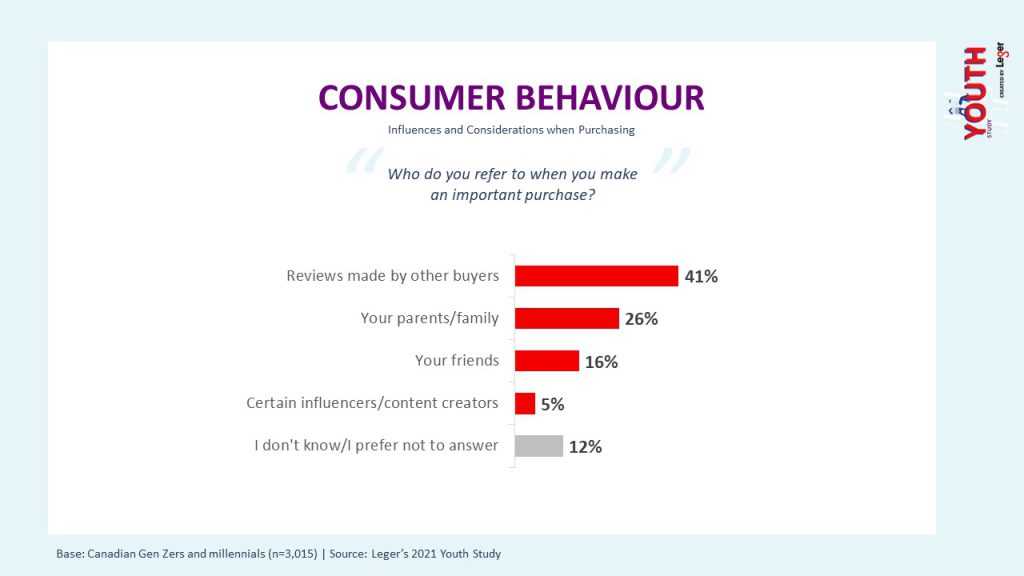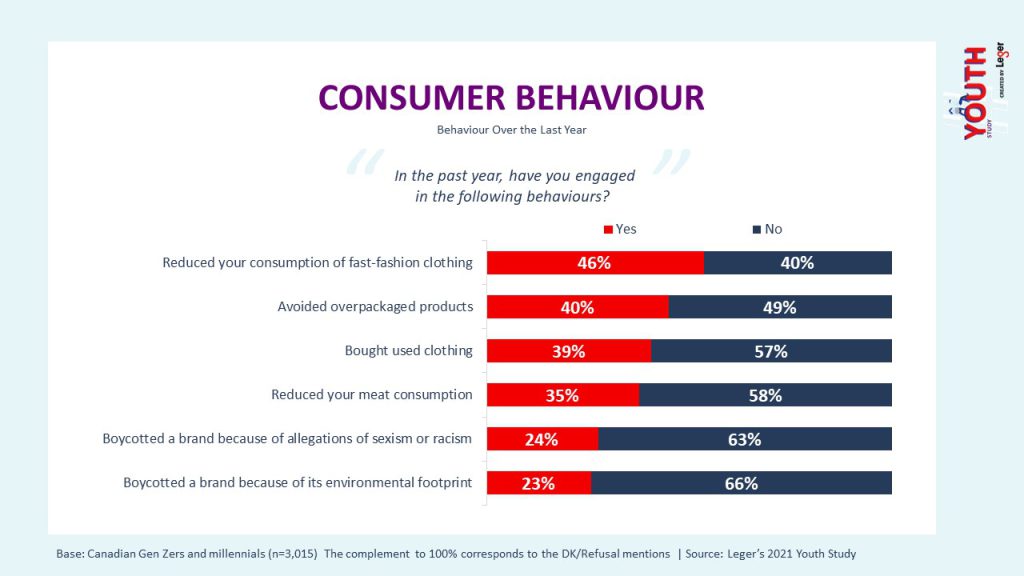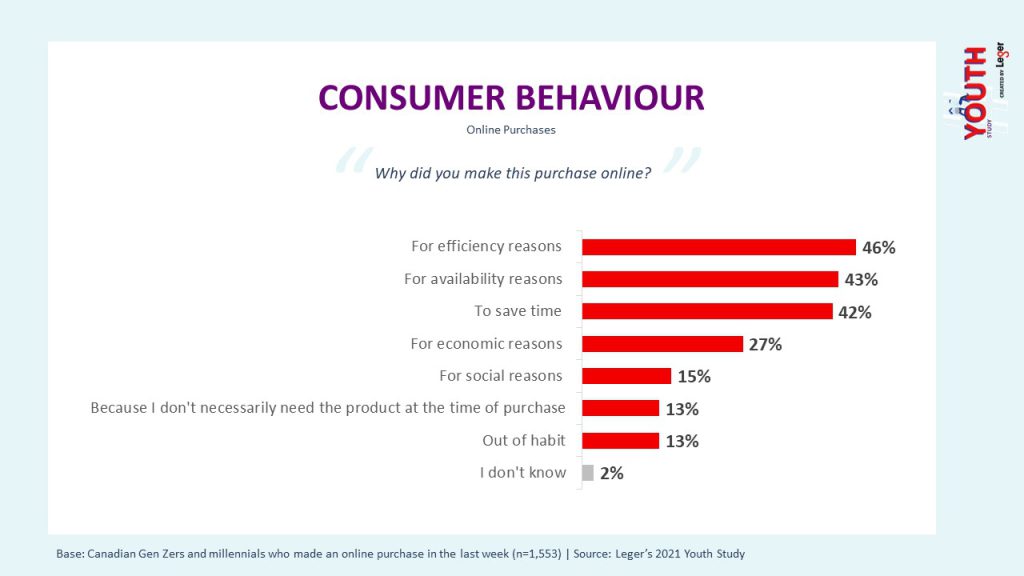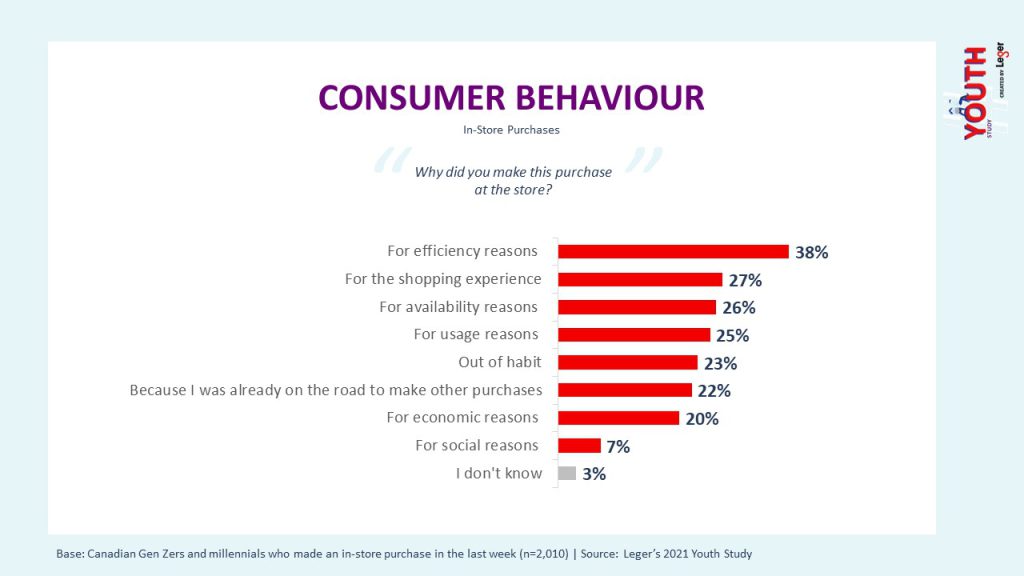Having different values, concerns and expectations from other generations means the younger generations have different consumer behaviour than previous generations.
Despite having less purchasing power, they spend a lot. More than other generations, they want to integrate their ethical principles into their everyday consumption. For them, everything is political, including what they consume. This does not prevent other factors from coming into play, such as a good or service’s price. The third section of the Youth Study analyzes what differentiates the younger generations’ consumer behaviour from that of other generations.
Efficiency
First, young consumers want efficiency in their purchases. If there are barriers, they will find alternatives relatively easily. Whether shopping online or in stores, this criterion remains, although it is obviously not the same type of efficiency that is sought in both cases. In stores, young people will want to ensure that their shopping experience is pleasant, without unnecessary social interaction, and that the products they buy are perfectly suited to their needs. Online, it seems that the efficiency sought is primarily about time and availability, as shown in the charts below.
Please click each image below to see a larger version.
Organizations must convey that purchasing from them is simple and efficient. Young consumers will find alternatives if there are too many interactions, unnecessary barriers or the waiting time is too long.
More Informed Consumers, Therefore, More Demanding
It’s no secret that a consumer product or service’s reputation depends more and more on certain consumer feedback. With the emergence of online services that allow consumers to criticize or praise a product, such as Google Reviews, organizations have lost some control over their external environment. The comments left by other buyers (41%) are the main reference for young Gen Zers and millennials when making a major purchase. We can infer that this is the case for purchases considered “minor”. Their parents and friends, as shown in the table below, guide them in their purchasing decisions in a different way, especially for substantial expenses, such as buying a house and a car.

The Demanding Ethics of Young Consumers
As mentioned above, Generations Y and Z want to incorporate ethics into their consumption. Better informed and more adept at detecting ethical problems in a company, they will not hesitate to speak out and boycott certain brands or products because of controversies that contradict their environmental and social values. The Youth Study’s findings on this subject are revealing. 46% percent of young consumers between the ages of 15 and 39 said they reduced their consumption of fast-fashion products in the past year, and 35% said they reduced their meat consumption. Furthermore, 24% of them boycotted a brand because of allegations of sexism or racism, and 23% because of its environmental footprint. Imagine an organization that, after serious allegations, would be forgotten by a quarter of a generation!

These young consumers and their consumer behaviour seem to be redefining certain industries. As their purchasing power increases, they will push organizations to improve their environmental and social ethics. Retaining the younger generations is key for any organization that wants to sustain its future.
ABOUT THE YOUTH STUDY
This is the 4th edition of the Youth Study, created by Leger. The Youth Study surveys two generations: millennials, aged 26 to 40, and Generation Z, aged 13 to 25. It enables us to analyze the behaviours and values of young people at the beginning of the year 2022. This edition attempts to answer the question: What does it mean to be a young person in 2022? To answer this, we have analyzed what it means to be a young citizen, worker and consumer in 2022.
READ OUR OTHER ARTICLES
Millennials and Gen Z Fear the Future
Millennials, Gen Z and the Labour Shortage: Flexibility Is Key


